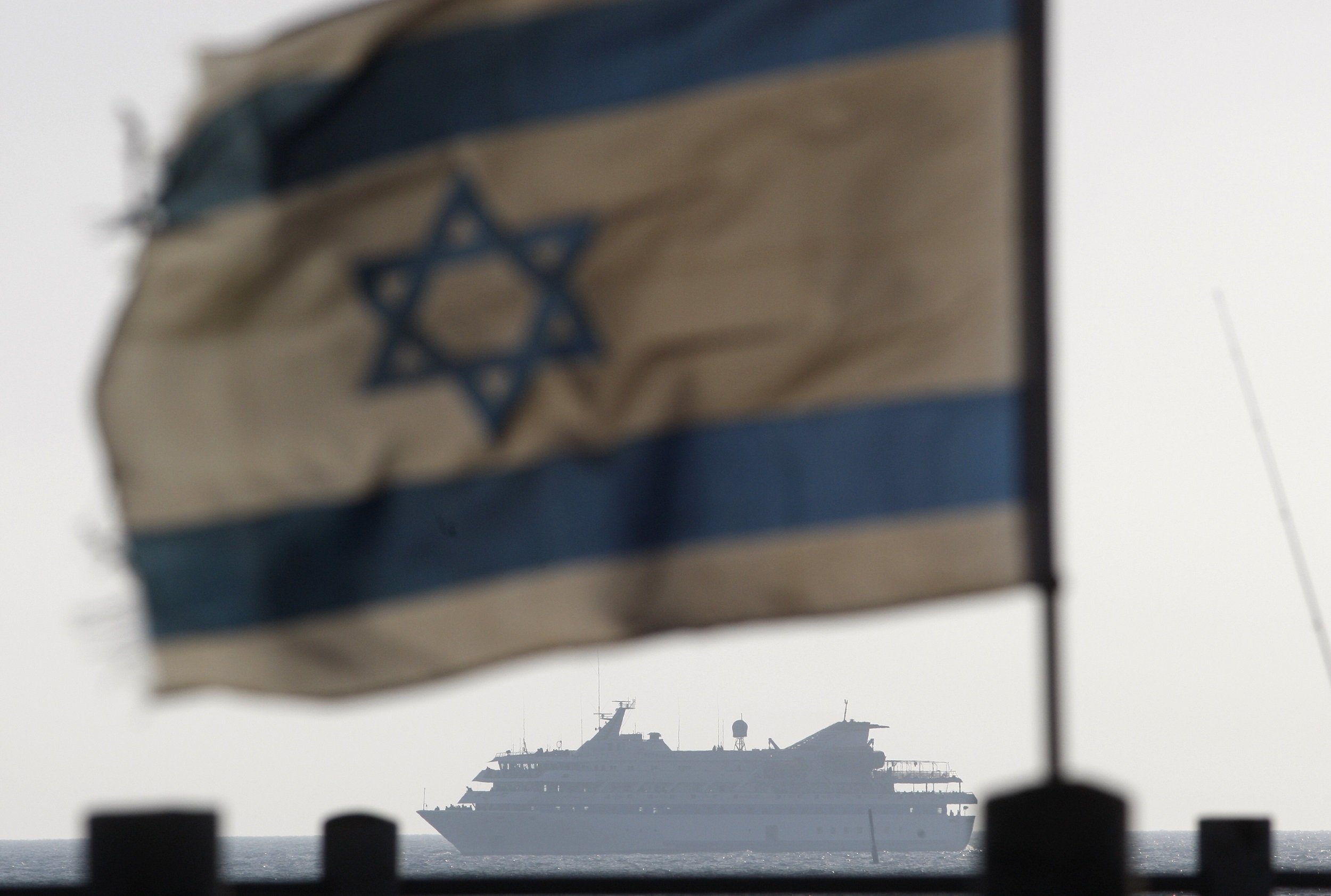
It was all Egypt's fault. From One Minute to the Mavi Marmara, a new book by a former Turkish ambassador to Israel, claims the regime of Egyptian President Hosni Mubarak was partly responsible for the deadly clash in 2010 when Israeli commandos boarded the Turkish ship Mavi Marmara and shot dead nine on board. The incident continues to sour relations between the two countries.
In his book, published Friday, Oğuz Çelikkol—who served as Ankara's top envoy in Tel Aviv at the time the Israeli Defense Force overwhelmed the Mavi Marmara that was attempting to supply Palestinians in Gaza—relays an incident "which I still can't explain," according to an account of the book in the Turkish newspaper Hurriyet.

It involved top Egyptian intelligence officials and perhaps agents provocateurs on the ship—and may indicate that Cairo exaggerated the danger Israeli troops would face on the Mavi Marmara, thereby encouraging them to use more force that was ultimately necessary to halt the ship's progress. To hide its part in the incident, the former envoy suggests, Egypt hustled away one of its intelligence agents on board the Mavi Marmara.
According to the result of Israeli investigations from that time, however, far from there being Cairo's intelligence agents on board, the few Egyptians found on the ship were members of the Muslim Brotherhood, who opposed the Mubarak regime in power in Egypt at the time.
The Mavi Marmara was the largest ship in a flotilla that attempted to deliver aid to Gaza, which at the time was blockaded by Israel and Egypt. Israel considered the flotilla a provocation. Although it seized the ship outside of Israel's territorial waters, a subsequent United Nations investigation determined that the ship seizure did not violate international law.
Turkey recalled its ambassador from Israel shortly afterwards and vowed not to resume relations until the Israeli government apologized and paid compensation to those involved. Despite recent reports of warming relations between Turkey and Israel, Ankara has yet to agree to a full resumption of diplomatic relations.
The flotilla was organized by an Islamist Turkish group, known as IHH. A breakdown of passenger nationalities released after the incident lists three Egyptian nationals among the passengers. According to a paper released by the Israeli Meir Amit Intelligence and Terrorism Center, among those captured were "members of the Egyptian parliament, who also belonged to the Muslim Brotherhood, which opposed the [Mubarak] regime."

The incident described by Çelikkol took place after Israel had released the activists it had taken into custody during the violent skirmish at sea. Nine Turkish citizens and one Turkish-American were killed in the May 31, 2010 event.
According to Hurriyet's account of Çelikkol's book, once Israel had released the Mavi Marmara detainees, the ambassador received instructions from Ankara to send back to Turkey every Turkish national captured by the Israelis on the ship, as well as those belonging to other nationalities.
However, Çelikkol writes, the Turkish embassy received information that one of the Egyptians who boarded the plane in Israel disembarked at the last moment. Israeli officials told the embassy that the Egyptian left the plane of his own accord and was collected by an official from Egypt's embassy in Tel Aviv. He was then sent to Egypt.
"Yet the information we received later indicated that person to be a member of the Egyptian intelligence organization and that he left the plane upon instructions coming from Cairo," the former ambassador wrote.
Furthermore, the ambassador notes, Egypt's powerful intelligence chief at the time, Omar Suleiman, had visited Tel Aviv just a week before the Mavi Marmara incident. The regime of Hosni Mubarak, Çelikkol speculates, "could have given wrong and exaggerated information to Israel about the ship, those present on the ship and even the presence of weapons and armed militants on the ship."
And, he adds, according to the Hurriyet translation, "It is understood that Israeli soldiers might have be there were weapons and armed people on the ship while they were attacking the ship, and that they searched for weapons and were surprised when no weapons were found."
YouTube footage released by the Israeli Defense Force after the incident clearly shows knives, iron pipes, axes, wooden bats and Molotov cocktails that had been found on the ship—but noticeably no firearms. According to a formal Israeli investigation, the IDF soldiers, members of the Shayetet, an elite naval unit, opened fire only after realizing that their lives were in danger.
Çelikkol speculates in his book that "Egypt had some reasons to scuttle Turkish-Israeli relations, including worries about Turkey's increasing visibility in the Middle East and its rhetoric aspiring to be a leader for Arab nations."
According to Çelikkol's account, Egypt was eager to cover up its role in causing tensions between Israel and Turkey by getting its intelligence assets out of Tel Aviv.
A simpler explanation may be that Cairo wanted to ensure that its own security forces were able to interrogate Egyptian regime opponents the Israelis detained on the Mavi Marmara on the grounds that they might have undermined the delicate and clandestine relationship between Egypt and Israel that existed at the time.
Uncommon Knowledge
Newsweek is committed to challenging conventional wisdom and finding connections in the search for common ground.
Newsweek is committed to challenging conventional wisdom and finding connections in the search for common ground.





